
- About Us +
- Developments +
- Sustainability +
- Happenings +
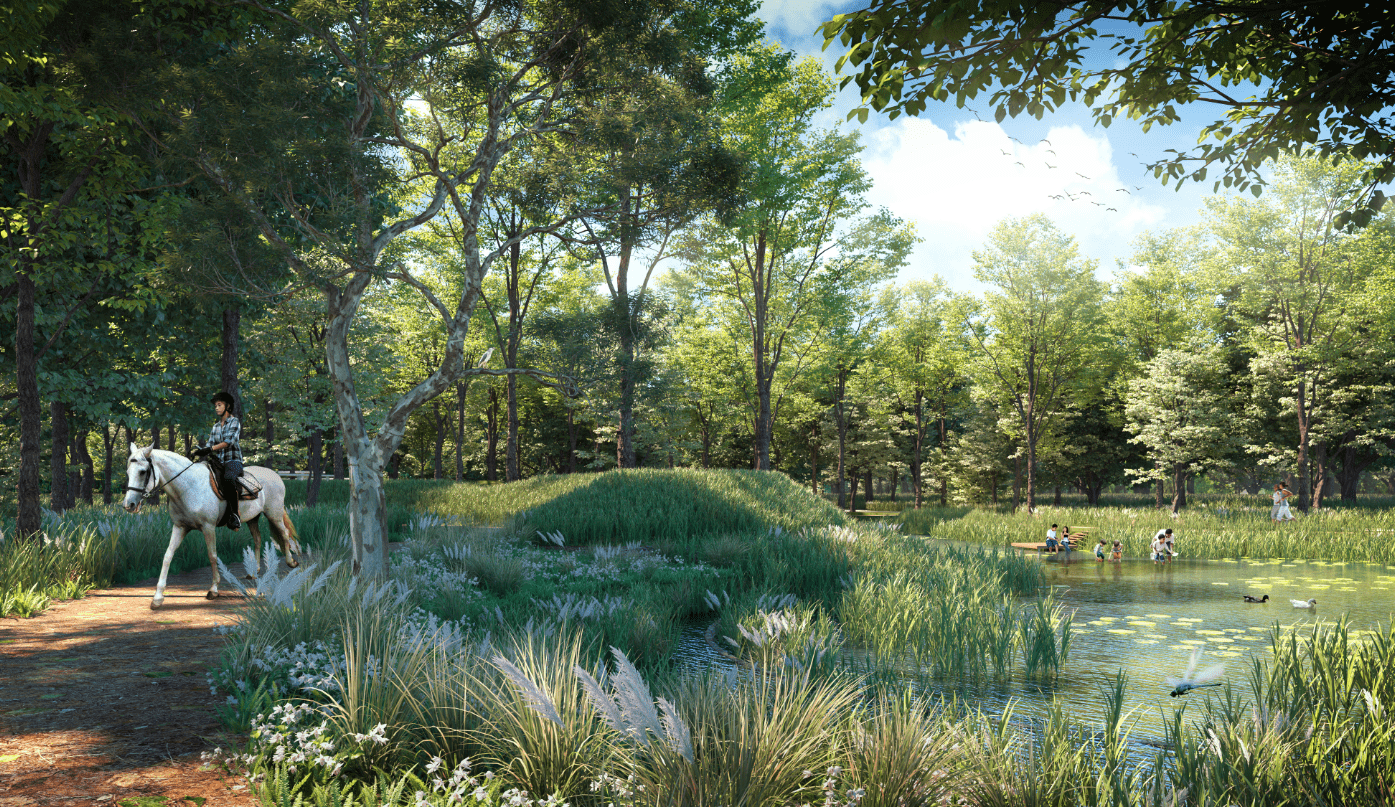
Gamuda Land takes a structured, accountable approach to decarbonisation, with clear, quantifiable targets outlined under the Gamuda Green Plan 2025. In this way, it reduces emissions, promotes carbon sequestration through tree planting and emphasises sustainability via renewable energy sources and more across its townships and communities, towards a greener, brighter future.
As a sustainable, international developer, driven by data, experience and digitalisation, we bring to life mindful and well-thought-out developments that embrace environmental health and people wellness, deliver social impact and are premised on governance that holds us accountable in all that we do.
Ngan Chee Meng, Chief Executive Officer of Gamuda Land
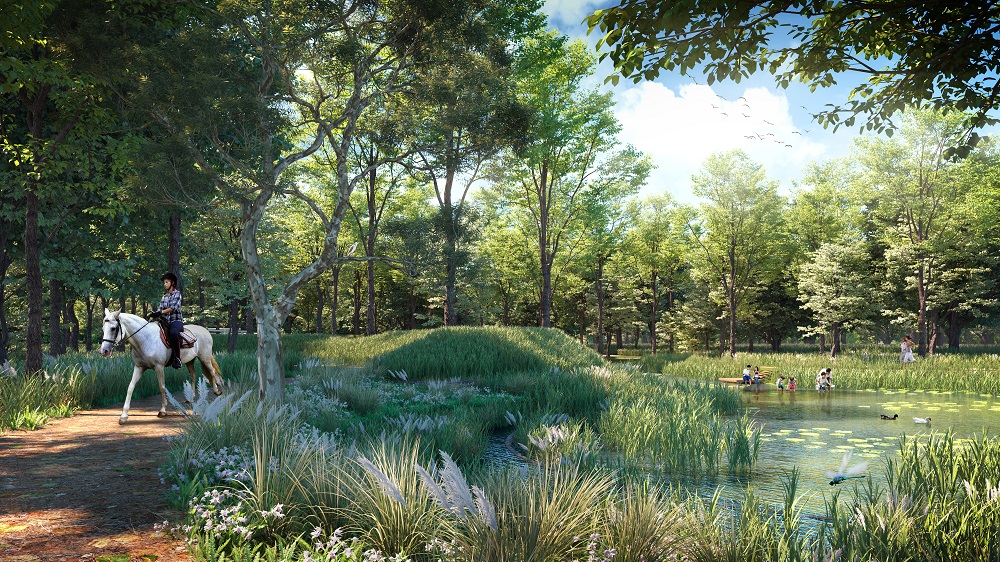
Property developers have been at the forefront of the green debate for the past decade with the pressure to deliver more sustainable and inclusive developments. Before the pandemic brought the world to a grinding halt - sector players across the value chain, as well as investors and sustainability experts were welcoming the hypothesis that better Environment Social and Governance (ESG) performance translates into higher asset value in the real estate space.
COVID-19 and the climate emergency is bringing about shifting market demand towards more efficient properties. Evident particularly in the residential sector, with remote working requiring people to live and work at home, the lack of flexible spaces, efficient energy systems, green zones (read inspiration-inducing, quiet spaces) has spurred people to reevaluate their relationships with nature, their surroundings and built environment.
Ngan Chee Meng, Chief Executive Officer of Gamuda Land explains, "Years of foundational efforts in our broader sustainability agenda have informed our four-pillared, group-wide Gamuda Green Plan 2025 (GGP). Announced mid this year with an overarching goal of reducing carbon emissions by 40 per cent by 2030, its timeliness - guided in large part by the ESG standards we are championing, cannot be overstated. It is not 'business as usual' for us. Specifically, at Gamuda Land, we translate this goal into enhanced commitments to sustainable townships and built environments. Anchored on forward-thinking approaches that will further integrate nature and community spaces, we aspire to strengthen and expand our global portfolio of resilient yet flexible and adaptive places to meet the changing needs of our stakeholders."
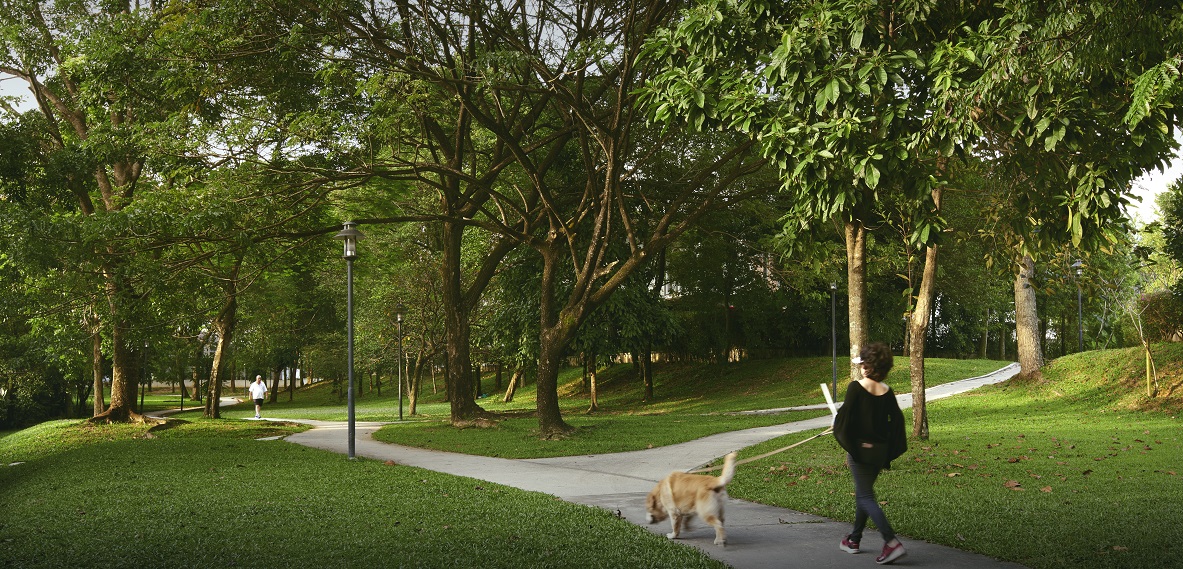
Pioneering habitat rehabilitation to safeguard the environment
It must be said that global warming is hitting closer to home. According to local urban rejuvenation firm, Think City, there have been increases in peak land surface temperatures of more than 5°C since 1988 across Ipoh, Johor Baru, and George Town - attributed to climate change and the urban heat island effect, as well as lack of greenery.
"Science-backed research reinforces Gamuda Land's core principle of 'listening to what the land has to tell us', a mantra to our differentiated approach in the areas of biodiversity and community inclusivity. This mindset allows us to create long-term climate risk mitigation strategies across all of our developments," began Khariza Abd Khalid, head of landscape architecture at Gamuda Land and Chief Operating Officer of Gamuda Parks.
Her team are stewards of two signature initiatives – the #OneMillionTrees campaign and Forest Park as well as Wetlands Arboretum at Gamuda Cove, both of which are designed to preserve and promote the country's biodiversity.
Gamuda Land aims to plant one million trees across its townships by 2023 as part of its biodiversity enhancement and township-building efforts.
Gamuda Cove, a township adjacent to the gazetted 1,111-acre Paya Indah Discovery Wetlands (PIDW), plays host to the Forest Park. Home to more than 300 species of flora and fauna once completed, the Forest Park, a 'living tree museum', will regenerate flora and fauna species with conservation value, address the issue of climate change and increase carbon storage value. Gamuda Land will introduce 100 per cent native species and 1,000 trees with conservation importance, as classified by the International Union for Conservation of Nature (IUCN) - capable of flood mitigation through the creation of deep root structures to channel underground water. The first of the Forest Park's two phases, comprising a Wetlands Arboretum, is projected for completion by end-2021 and is poised to kick-start its role as a research facility and educational hub for arborists, environmentalists as well as the public, creating green jobs and eco-tourism opportunities.
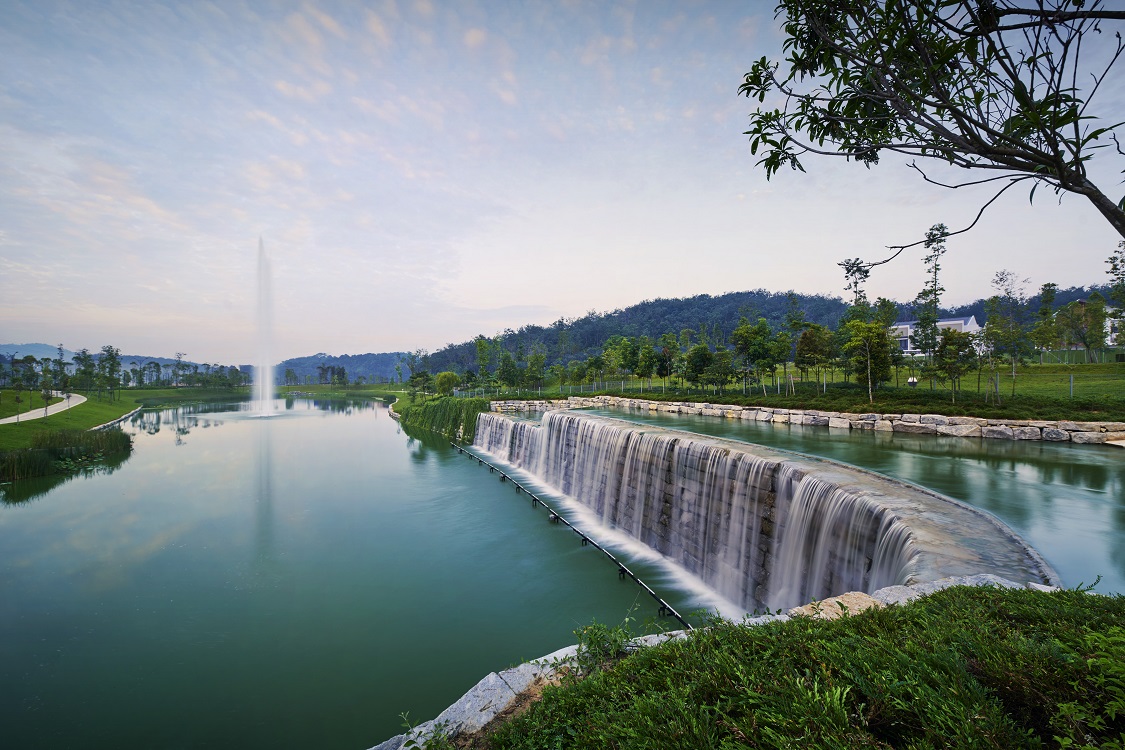
Renewable energy for sustainable developments
As the Group takes on the proverbial "gunning the accelerator" approach in deploying the GGP, Gamuda Land Vietnam marked a milestone this March, launching the Group's first solar energy operated sports complex, the Celadon Sports and Resort Club (CSRC) in Celadon City, Ho Chi Minh. Designed to drive a greener economy, this sustainable masterplan features climate-resilient design, integrated transport and energy-efficient buildings with smart features.
Ngan says, "Powered by 1,677 photovoltaic (PV) panels covering 4,800 m2 of the venue's roof, the system produces an average of 2,800 kWh of electricity per day, equivalent to 84,000 kWh per month during peak summer months. For perspective, this can power up to 250 homes over 30 days, should the main power grid be interrupted. On another bright side, every kW of this low carbon energy is 15 per cent cheaper than the city's electricity tariff rate. I must add that the Vietnamese government's solar energy feed-in-tariff, established in 2017 to encourage local energy transition, has enabled the realisation of this socially responsible project."
In Malaysia, this invaluable technical know-how has been instrumental in developing and implementing renewable energy infrastructure at Kuala Lumpur's Gamuda Gardens. Combining natural elements provided by flora and fauna with technical innovations of photovoltaic panels on the roof of the township's Waterfront Village, this ecosystem generates renewable energy that reduces electricity consumption by an outstanding 85 per cent.
"We firmly believe that significant technological advancements for energy conversion efficiency will be made in the immediate term. As the global shift towards responsible consumption and living gathers momentum, Gamuda Land looks to be at the forefront of renewable energy adoption in the development sector, galvanising the industry to further innovate," adds Ngan.
Gamuda Land is currently reviewing the potential implementation of renewable energy for all its upcoming and future commercial developments.
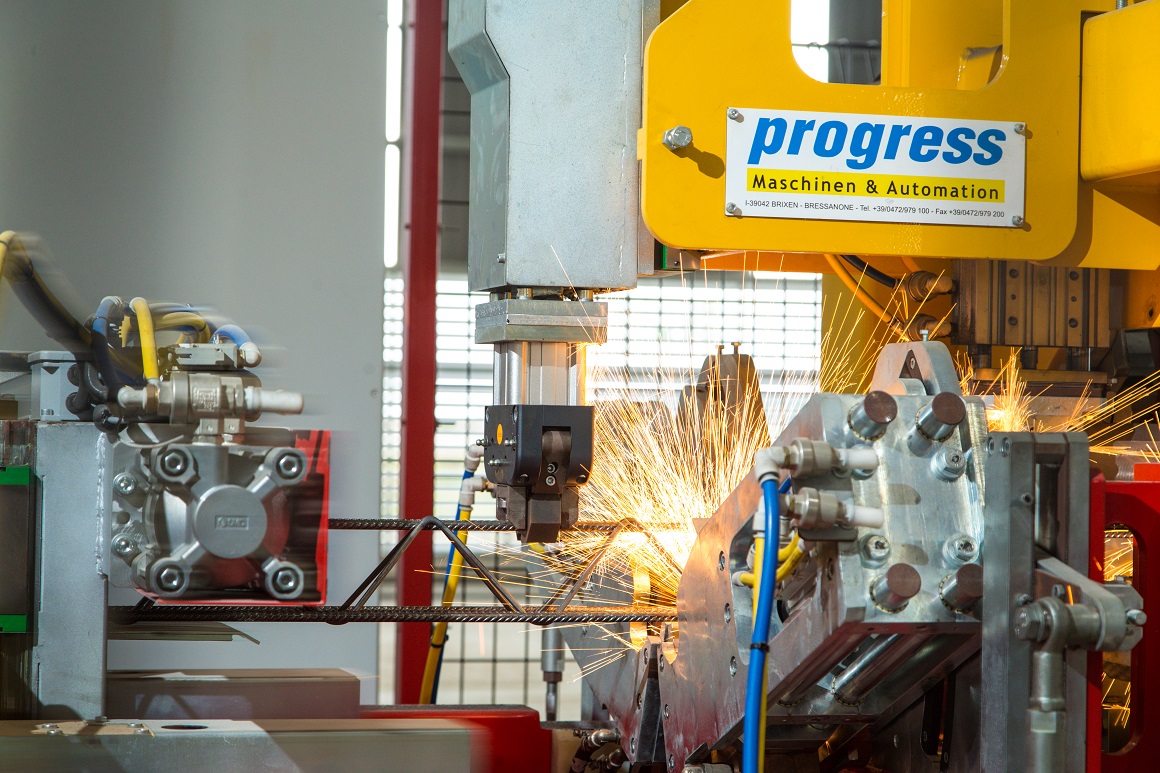
Enhancing Sustainability through Digital Construction
To accelerate progress towards these ambitious targets, Gamuda Land will fully adopt Digital Industrialised Building Systems (IBS) across all its developments.
Ngan said digital IBS could deliver a wide range of construction products through cloud-based Building Information Modelling (BIM) design, integrated with precise robotic production.
"It is not just a precast factory. It is the digital manufacturing of our construction products. Product design is done online and paperless while data is stored on the cloud, then sent directly to the robots. The panels are made based on the online drawings. Then the panels are assembled on-site like Lego blocks," Ngan explained.
This, he said, would reduce Gamuda's reliance on the foreign workforce and generate less waste, which are crucial elements of ESG.
The focus is on upskilling data literacy and digital skills as key enablers for sustainable growth.
"It is imperative that we increase our productivity and upskill the local workforce and supply chain to enhance sustainability through digital construction - the future of homebuilding."
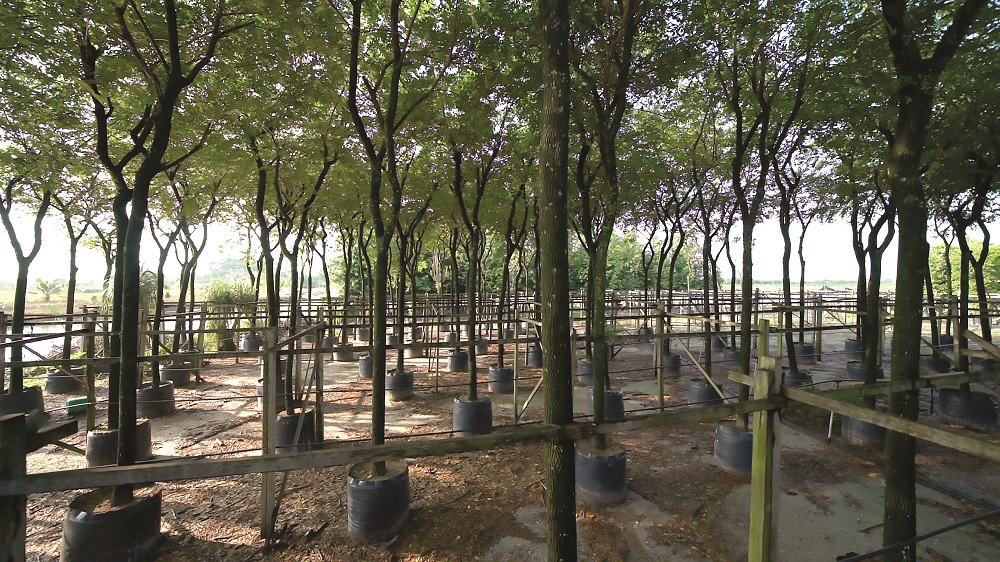
Building real estate resilience means being intentional about ESG
"Delivering a master-planned, carbon-efficient township is an intentional and measurable effort, which is why adopting and incorporating the ESG standards into every facet of our business works for us. As a sustainable, international developer, driven by data, experience and digitalisation, we bring to life mindful and well-thought-out developments that embrace environmental health and people wellness, deliver social impact and are premised on governance that holds us accountable in all that we do."
An example of this is Gamuda Cove - planned and being developed as a town that can stand the test of time. The groundwork that has been put in is as expansive as it is inclusive. Within a year of launching the township, the project's biodiversity audit shows delivery on key metrics, with a dashboard of 30 per cent carbon dioxide emission reduction against climate change.
We understand that when it comes to resilient township development, the priority must be to fully understand gaps and then to build capability. To paraphrase the World Economic Forum in a recent industry piece: now it is about seizing the moment to decarbonise portfolios and make operations sustainable, as COVID-19 and climate change remind us that real estate is a sector driven by human habits.
The Group's Green Plan 2025 leapfrogs Gamuda Land's ability to weather adverse conditions while leveraging demand for safer, healthier and more sustainable built environments. Supported by cutting-edge technology that measures and assesses sustainability, and climate-related risks/opportunities, we can achieve our goal of reducing carbon emissions by 40 per cent in 2030.
This is why, by being intentional with our purpose, goals and accountability, we can "Build Right. For Life". Through ESG, we want to also accelerate the speed at which the industry can reimagine itself, spurring a strong desire across our value chain to make a real difference, creating a genuine win-win for all parties, concludes Ngan.
To learn more about the Gamuda Green Plan, click here.